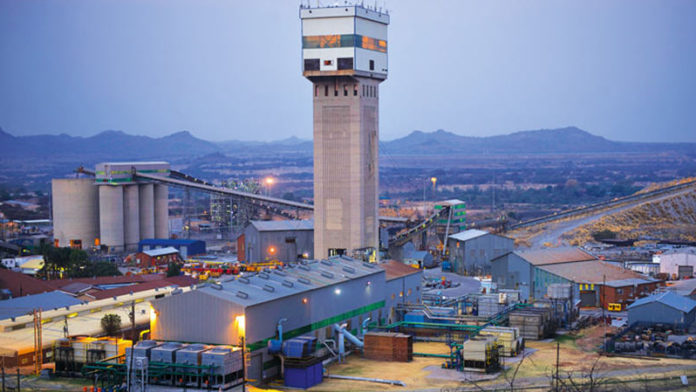
SIBANYE-Stillwater today settled a metals streaming agreement over platinum group metals (PGM) mined from Marikana, operations formerly owned by Lonmin.
The terms of the settlement include payment of $50m in cash (R766m) to the counter party that financed for $50m construction of Lonmin’s Bulk Tailing Treatment facility in 2016.
In return for supplying the finance to Lonmin, the counter party received a portion of all PGM production from the facility at 16% to 20% of their spot price. The counter party also held the Bulk Trailing Treatment facility as security until satisfaction of the streaming deal.
The value of the Marikana streaming agreement at spot was about $81m, said Sibanye-Stillwater.
In order to close the streaming agreement, Sibanye-Stillwater agreed a financing deal with US bank Merrill Lynch in terms of which the bank will receive platinum from Marikana. Crucially, however, the supply agreement with Merrill Lynch excludes high-flying palladium and rhodium from Marikana which Sibanye-Stillwater will sell for itself.
The settlement of the streaming agreement, and its replacement with the ‘platinum prepayment’ deal with Merrill Lynch, sees Sibanye-Stillwater settle a negative legacy of having bought Lonmin, a R4.3bn deal completed last year in an all-share ‘merger’.
Said Sibanye-Stillwater: “The transaction will extinguish a high cost, secured, long-term financing instrument and replace it with a significantly lower cost, unsecured, short-term facility providing operational flexibility for the Marikana operations and the ability to immediately market the now uncommitted palladium and rhodium metals to realise optimal pricing opportunities”.
In terms of the deal with Merrill Lynch, Marikana will deliver 72,886 ounces of platinum from June to December. The deliveries are subject to a floor price of $700 per oz and a cap price of $1,050/oz. This platinum is about 3% of Sibanye-Stillwater’s total 2020 4E production.
Lonmin had originally agreed to the streaming deal because it was extremely cash-strapped but needed the benefit of relatively low cost production from the tailings facility. The company would have run out of finance had it not completed the merger with Sibanye-Stillwater.
Commenting in February on its acquisition of Lonmin, Sibanye-Stillwater CEO, Neal Froneman, said realised benefits of R180m had been booked during the first seven months of ownership of some R730m in synergies banked upon over a three to four year period as part of the initial acquisition.
He added, however, that total synergies were likely to be more; in the region of R1.2bn as soon as the completion of the current financial year. These included closure of Lonmin’s head office, synergies from shared employment and mine services, and processing synergies.











